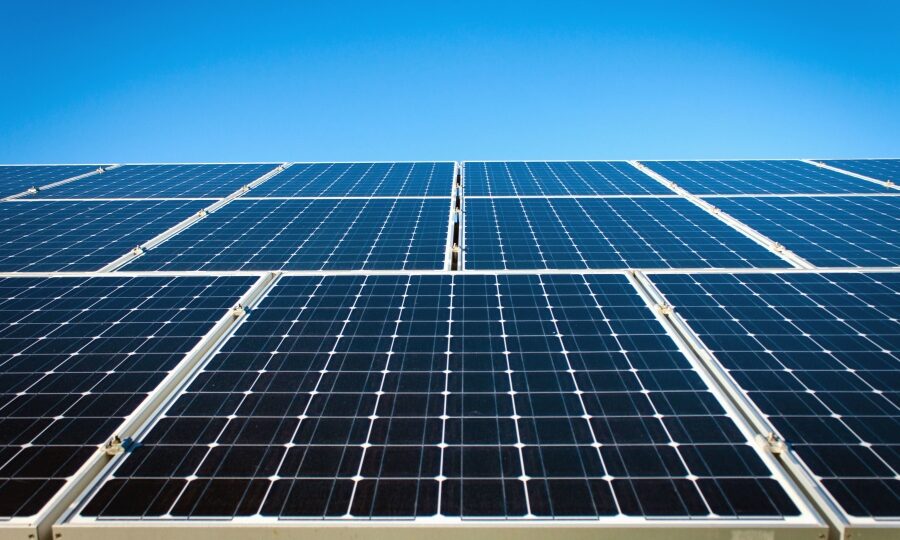All Biden’s (anti-Chinese?) Ads about solar panels

Biden will exempt solar panels imported from Southeast Asia from duties for two years, while stimulating American manufacturing with a special law. The White House has climate commitments to meet, but it doesn't want to lose industrial competition with China. All the details
As anticipated by Reuters , US President Joe Biden will today announce a 24-month duty free period for solar panels from four Southeast Asian countries: Cambodia, Malaysia, Thailand and Vietnam. Together, these nations account for approximately 80 percent of American supplies of these devices.
THE INVESTIGATION OF THE DEPARTMENT OF TRADE
Biden's announcement should serve to solve a supply problem that is slowing photovoltaic capacity installations in the United States, jeopardizing the achievement of the White House climate goals on schedule: the president would like to halve American greenhouse gas emissions. by 2030 and power the electricity grid exclusively with clean energy sources by 2035.
The American solar industry is extremely dependent on Asian panels. In March, however, the Commerce Department – following a complaint from a Californian manufacturing company, Auxin Solar – opened an investigation into appliances from Malaysia, Vietnam, Thailand and Cambodia to verify that those countries are not actually hiding. the China. The suspicion, that is, is that Beijing is exploiting Southeast Asia as a production "base" to enter the US market by circumventing the duties on Chinese photovoltaic devices (up to 250 percent).
RETROACTIVE DUTIES
If the investigation proves the Chinese "maneuver" – a first verdict will take place at the end of August – then the Biden administration could also apply duties on solar panels from Southeast Asia: the tariffs will be retroactive and will amount to a maximum of $ 3.6 billion, according to an estimate by energy consultancy Rystad Energy.
A source told Reuters that Washington could apply tariffs on Asian panels once the two-year period is over, but remove the retroactive character.
SOLAR PROJECTS AT RISK
Fear of tariffs has prompted many American companies that install photovoltaics on land and house roofs to suspend or cancel many projects. In 2022, 27 gigawatts of new solar capacity were expected, but due to the administration's policies, perhaps only 10 will be realized, says Rystad.
CLIMATE TARGETS AND INDUSTRIAL OBJECTIVES
The dependence on Asian panels has divided the American solar industry and brought to light all the difficulties of Biden's plan for clean energy and the repatriation of strategic supply chains. On the one hand, there are the small US manufacturing companies that manufacture panels (such as Auxin Solar, which started the investigation): they cannot stand up to Chinese and Asian competition, and therefore see tariffs as an opportunity for growth. On the other hand, there are the energy companies that develop photovoltaic projects and that need a lot of low-cost appliances.
To meet the latter – without them the ecological transition is impossible – Biden will exempt Cambodian, Malay, Thai and Vietnamese panels from duties. In order not to forget the former, however – America wants to gain manufacturing capacity of strategic technologies -, it will invoke the Defense Production Act: it is a law of 1950 that will serve this time to stimulate the American production of panels and components for clean energy, through loans and grants to businesses. Biden already called on it in late March to encourage the production of critical minerals for batteries (lithium, nickel, graphite, cobalt) in the United States. Even then, the goal was to regain ground with respect to China, which controls the supply chains of these essential raw materials.
WHAT SECTOR OPERATORS THINK
In a statement Abigail Ross Hopper, president of SEIA, the association that brings together US solar industry players, called Biden's announcement on tariffs "a necessary respite from this investigation that is crushing the industry." "During the two-year tariff suspension window," he added, "the US solar industry can return to rapid deployment, while the Defense Production Act helps grow US solar manufacturing."
This is a machine translation from Italian language of a post published on Start Magazine at the URL https://www.startmag.it/energia/joe-biden-esenzione-dazi-pannelli-solari-asia/ on Mon, 06 Jun 2022 09:51:34 +0000.
